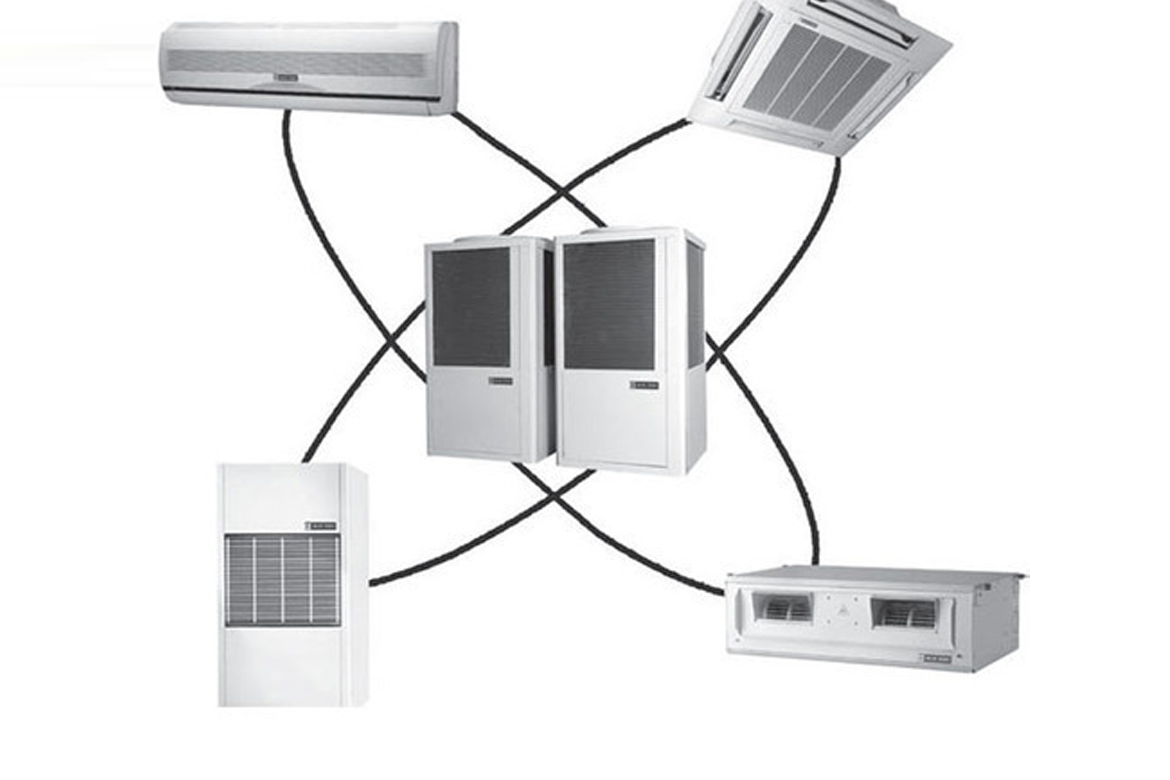Plot.No-399, F.F, Block–L, Lane-11, Mahipalpur Extension, New Delhi 110037

VRF / VRV
VRF are typically installed with an air conditioner inverter which adds a DC inverter to the compressor in order to support variable motor speed and thus variable refrigerant flow rather than simply perform on/off operation. By operating at varying speeds, VRF units work only at the needed rate allowing for substantial energy savings at load conditions. Heat recovery VRF technology allows individual indoor units to heat or cool as required, while the compressor load benefits from the internal heat recovery. Energy savings of up to 55% are predicted over comparable unitary equipment. This also results in greater control of the building's interior temperature by the building's occupants.
VRF come in two system formats, two pipe and three pipe systems. In a heat pump two pipe system all of the zones must either be all in cooling or all in heating. Heat Recovery (HR) systems have the ability to simultaneously heat certain zones while cooling others; this is usually done through a three pipe design, with the exception of Mitsubishi and Carrier, whose systems are able to do this with a two pipe system using a branch circuit (BC) controller to the individual indoor evaporator zones. In this case the heat extracted from zones requiring cooling is put to use in the zones requiring heating. This is made possible because the heating unit is functioning as a condenser, providing sub-cooled liquid back into the line that is being used for cooling. While the heat recovery system has a greater initial cost, it allows for better zoned thermal control of a building and overall greater efficiencies. In heat recovery VRF systems, some of the indoor units may be in cooling mode while others are in heating mode, reducing energy consumption.
Copyright 2019 All Rights Reserved Designed By OGEN Infosystem Website Designing Company in India